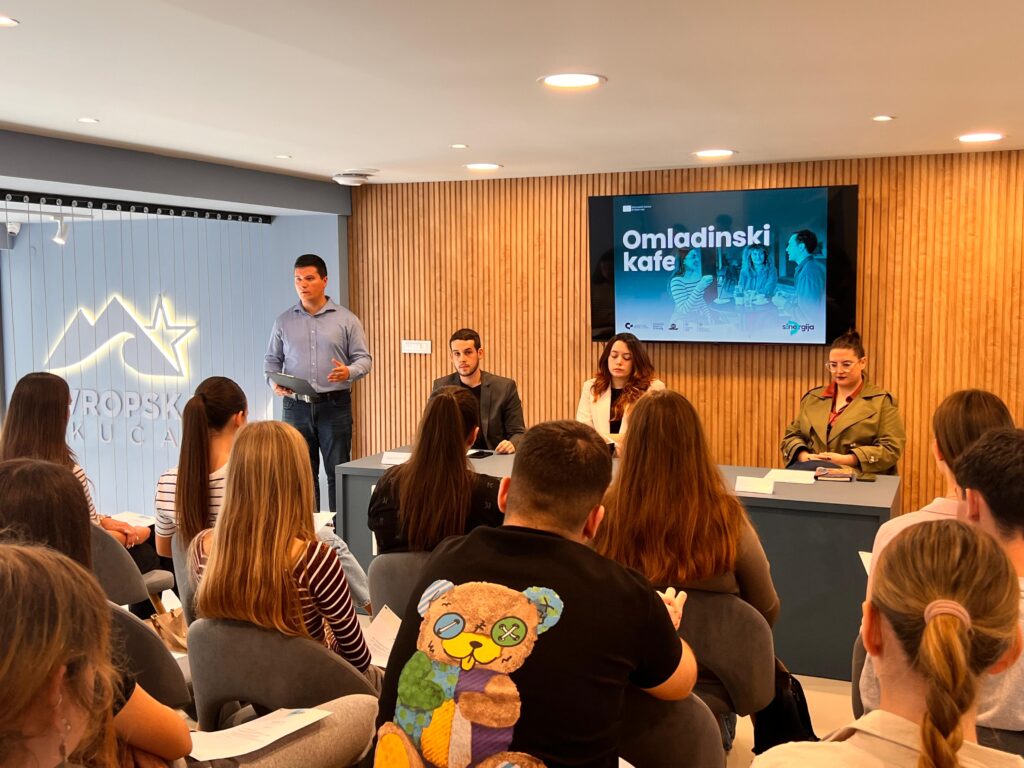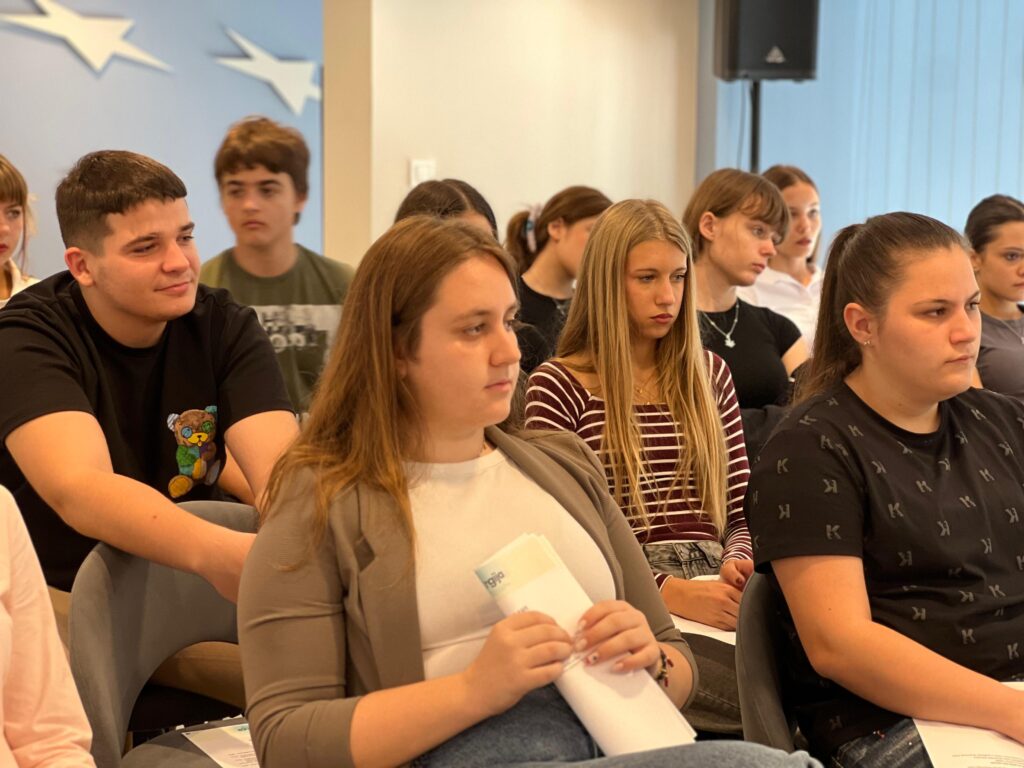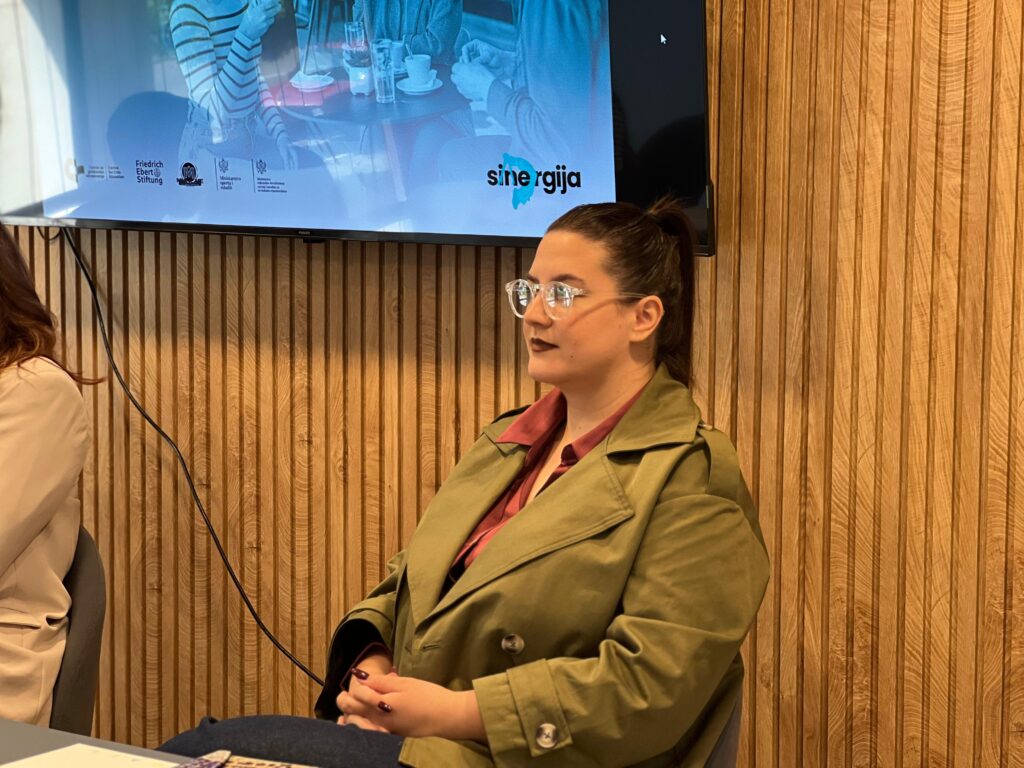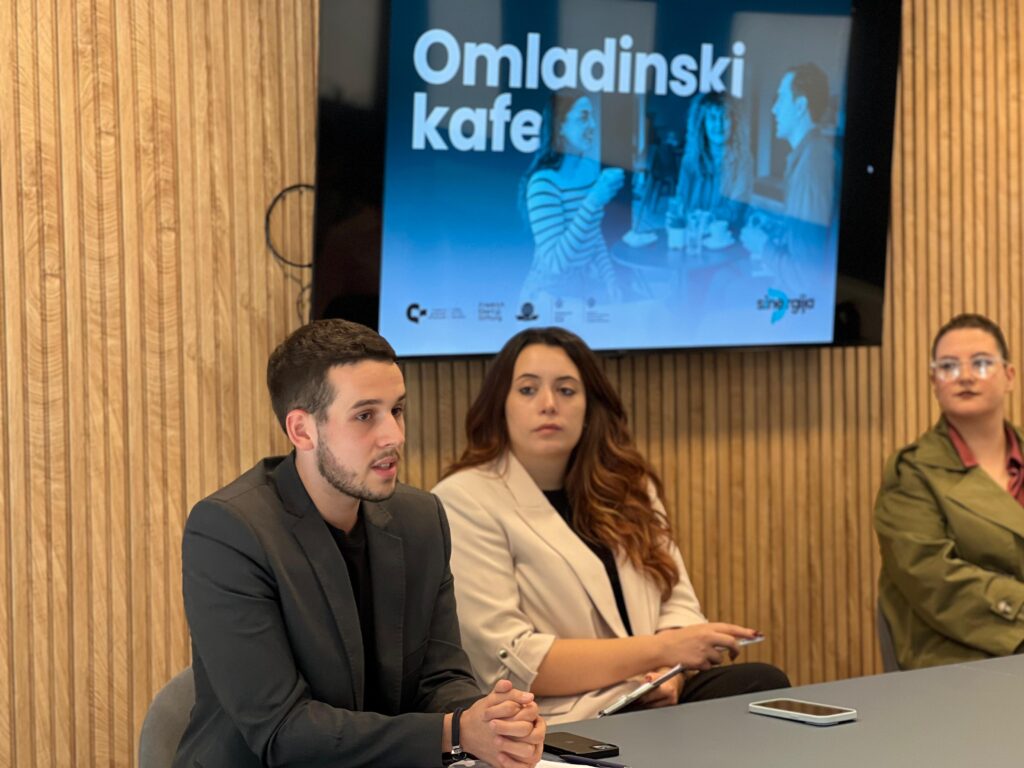Young people in Montenegro must become active and respected agents of social change, and right now they have the potential to transform society and contribute to its development. In doing so, they prove that there can be no sustainable progress without them, it was emphasized today during the Youth Café organized by the Centre for Civic Education (CCE) at the Europe House in Bar. This is the first in a series of nine similar events to be held across all three regions of Montenegro within the programme “SYNERGY Montenegro – strengthening youth networks and empowering resilient groups and young people in Montenegro”.

“We created this programme to provide young people with concrete opportunities, knowledge, and tools – from strengthening youth organizations and supporting education and employment, to opening space for dialogue with decision-makers. Our goal is to help young people become active and respected actors in society, not just observers”, said Nikola Đurašević, Programme Associate at the CCE, opening the event.
Anja Kečalović, Senior Advisor at the Ministry of Sports and Youth, and Jovan Joksimović, a student at the Faculty of Political Science at the University of Montenegro, shared their views on the challenges and opportunities for youth.

Speaking about the support provided by the Ministry of Sports and Youth, Kečalović emphasized the importance of the Youth Guarantee programme, as a key instrument of youth employment and empowerment policy in Montenegro, intended for young people aged 15 to 29 who are neither employed nor engaged in education or training. “The Youth Guarantee pilot programme is already being implemented in Bijelo Polje, Nikšić and Ulcinj, with the aim that every young person receives a quality offer for employment, further education, training, or internship within four months. The experiences gained from this programme will serve as a platform for activating the Guarantees in other municipalities as well”, Kečalović stated.

She added that the Ministry of Sports and Youth supports projects through the annual call for NGOs, while simultaneously strengthening a network of eleven youth services. Three new ones are planned in Plužine, Tivat, and Zeta. Kečalović also referred to the Youth Strategy 2023–2027 and the current Law on Youth, highlighting that amendments to the Law are underway to strengthen the institutional framework, enhance youth participation, and improve funding of youth policies. “The integrated approach, which includes the Youth Guarantee, project support, development and improvement of services, and legislative amendments, aims to ensure equal opportunities for education, employment, and personal growth for young people across Montenegro”, she concluded.
“The biggest challenges faced by students, as well as most other young people, relate to the lack of opportunities for practical experience and limited possibilities to influence decision-making processes that concern them”, said Joksimović. Speaking from the youth perspective, he pointed to the enormous potential of young people that should be activated, through genuine support and opportunities for involvement in decision-making processes. “To achieve this, we must all act together – from local governments and ministries to the highest levels of the Government and the President. In this way, we can create and improve mechanisms through which the voices of young people will truly be heard, respected, and translated into concrete actions”, Joksimović concluded.

The Youth Café gathered over twenty young people from Bar, aiming to strengthening dialogue and exchange perspectives between institutions, media, and youth.
The project “SYNERGY Montenegro – strengthening youth networks and empowering resilient groups and young people in Montenegro” is implemented by the CCE in partnership with the German Friedrich Ebert Stiftung (FES) and the NGO Multimedial Montenegro, in cooperation with the Ministry of Sports and Youth and with the financial support of the European Union and co-financing from the Ministry of Regional Investment Development and Cooperation with NGOs.
Jovana Radulović, Project Assistant
